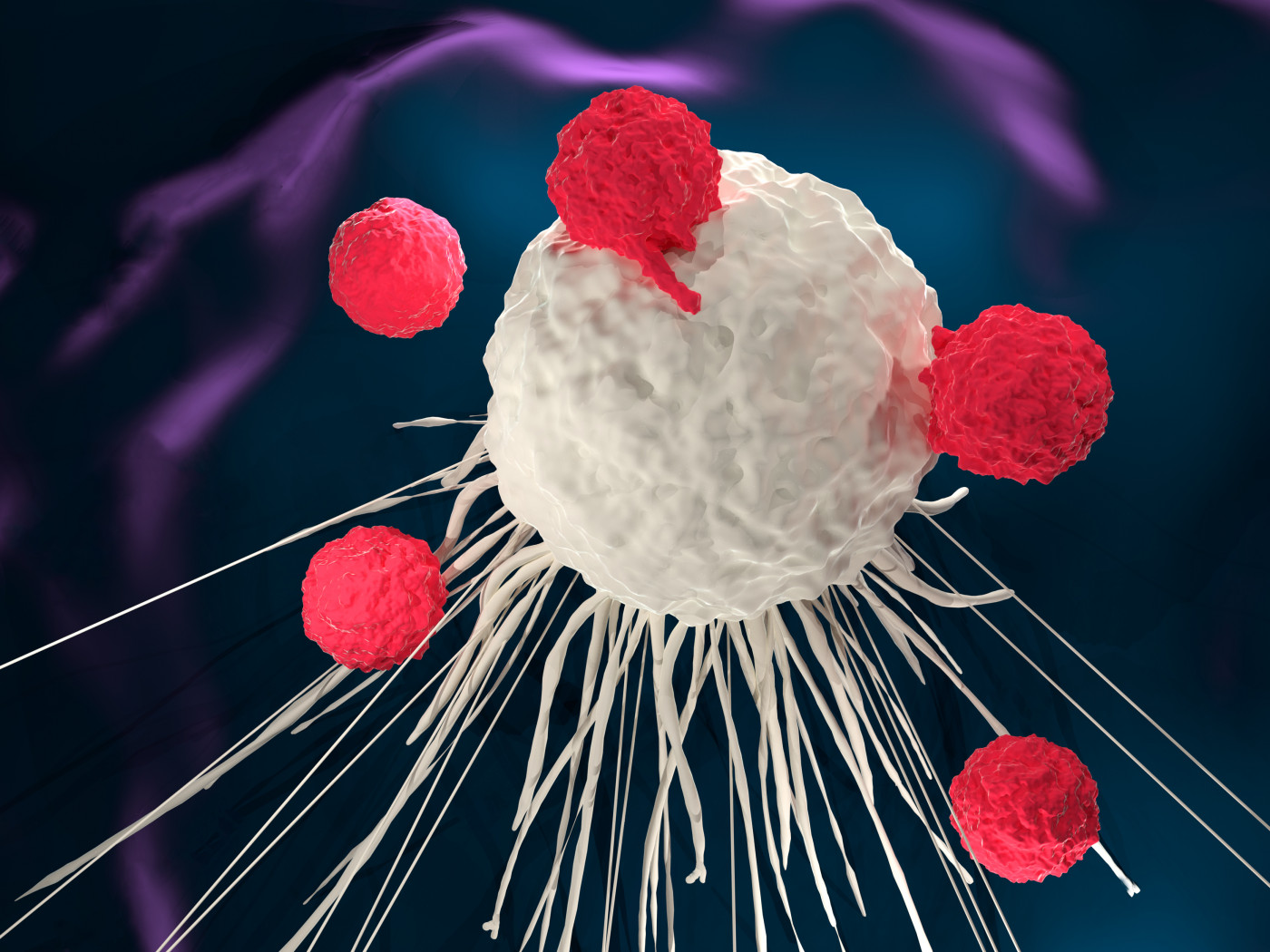Unum’s T-Cell Therapy Enters Phase 1 Trial for Relapsed or Refractory Multiple Myeloma
Written by |

The U.S. Food and Drug Administration (FDA) recently approved an investigational new drug (IND) application filed by Unum Therapeutics for its ACTR087 T-cell therapy to be used in combination with an anti-tumor antibody for the treatment of relapsed or refractory multiple myeloma.
IND status will allow the company to initiate a Phase 1 trial to test the safety and effectiveness of the combo therapy in this patient population. Unum expects to initiate patient dosing in the first quarter of 2018.
This will be Unum’s first candidate developed in collaboration with Seattle Genetics to enter clinical studies.
“Despite significant advances in the multiple myeloma field over the past 15 years, there remain significant unmet medical needs in the treatment of the disease, as almost all patients eventually become refractory to therapy,” Michael Vasconcelles, MD, chief medical officer of Unum, said in a press release.
ACTR, or antibody-coupled T-cell receptor, is a protein that combines structural elements from receptors normally found on two types of human immune cells, natural killer (NK) cells and T-cells. Taking advantage of the anti-tumor activities of NK and T-cells, ACRTs provide a new approach to attack cancer cells.
Unum’s strategy consists of using a patient’s own T-cells and modifying them to express an ACRT protein. When combined with antibodies that bind to cancer cells, the ACRT T-cells will specifically target the antibody-labeled cells.
This new approach can overcome some limitations of other engineered T-cell therapies, such as CAR and TCR T-cell therapies. It has the potential to recognize several cancer targets, facilitating its use in treating multiple cancer types.
The open-label ATTCK-17-01 trial (NCT03266692) will evaluate the safety, tolerability, and anticancer activity of ACTR087 in combination with SEA-BCMA in patients with relapsed or refractory multiple myeloma. SEA-BCMA is a humanized antibody developed by Seattle Genetics to recognize and bind to the BCMA protein expressed by myeloma cells.
The trial will be conducted at several clinical sites in the U.S. and is expected to enroll 30 adult myeloma patients who received at least three prior lines of therapy.
The investigators aim to determine the recommended dosing regimen to be used in future clinical developments. They will also evaluate patients’ response to the treatment, as well as the safety and tolerability of SEA-BCMA.
“B cell maturation antigen, or BCMA, is considered an attractive therapeutic target for cellular immunotherapies, due to its high and selective expression on the surface of malignant plasma cells in multiple myeloma and its potential role in survival and growth of myeloma cells,” Vasconcelles said. “We are eager to assess the potential of ACTR087 in combination with SEA-BCMA to become an important new therapy for multiple myeloma patients.”
ACTR087 is currently being investigated in a Phase 1 trial (NCT02776813), in combination with the CD20 antibody Rituxan (rituximab), for the treatment of adult patients with relapsed or refractory CD20-positive B-cell non-Hodgkin’s lymphoma.



